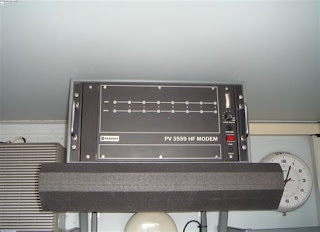Well before all the automated reverse-parking cams, warning beepers, road alignment sensors, and other fancy technology came along, I spent six months testing drivers every couple of weeks. It was a rostered duty, 8 am to 4 pm with driver testing the main objective.
It was a break from the business of evening and night shift attending pub fights, break and enters, domestic violence, missing teenage daughters, traffic incidents, and drink drivers etc. And it wasn't without a few good laughs, much needed in policing.
The Sexy Candidates
A couple of times in any week I was rostered, an attractive 17-18-year-old woman would roll up for her driving test with the shortest skirt, the loosest blouse, or loveliest nipples I had ever seen either visible or sticking through a tightly knit top.
As they got in their car, they would pull up their skirts exposing their young, smooth thighs and occasionally their underwear. Some of the braver ladies would tell me, "Dad told me if I wore a short skirt, I'd have a better chance of passing."
I was in my very early thirties and despite finding the conversation starters and lovely thighs arousing, I had a job to do and had to do it professionally. I rarely answered the braver ladies and managed to focus on their driving ability and not their ability to arouse me. I was also married and while I enjoyed admiring the beauty of these women, kept my focus where it should be.
Most passed. Not because of their physical appearance, but because they were able to safely control a vehicle and comply with the traffic rules.
The Idiots
These are the one or two people who were stupid enough to turn up for a driving test with a vehicle that was obviously defective. Tyres with hardly any tread pattern, parts of the body of the vehicle missing (under repair they'd say), handbrakes that didn't work, no horn, mirrors missing and a host of other defects.
They didn't get to do a licence test, but they did go home with a defect notice and one or more traffic infringement notices. As the vehicles were unroadworthy, they'd have to get them towed away.
Unbelievable.
The Scary
The scariest two incidents I had during my testing career involved a handbrake failure and an inability to stop a reversing automatic vehicle.
There weren't many hills where we tested, but one was very steep and we used it to test people doing a stop and start on a slope. It led to a T intersection.
I always taught my candidates to turn their front wheels slightly inward and select the first gear so that if something happened to the handbrake, or to move the vehicle, it wouldn't roll down the hill.
One day a young man who had been driving quite well drove up the hill, positioned the vehicle and was just about to turn the wheels inward and "snap!" The handbrake cable snapped and we began rolling backwards towards the T junction.
I yelled at him, "Apply the footbrake! Apply the footbrake!" and fortunately, he managed to stop the car across the intersection road without launching into the house directly behind us. We were both shaken by the incident and needed to get out of the way before traffic approached.
We managed to get back to what we were doing and I gave him his licence despite not having fully completed the handbrake start due to no fault of his. I gave him a defect notice without penalty to get the handrake cable replaced.
The next case was with a woman driver in her 60-70s going for her first licence (see next topic). Automatic cars weren't as common then as they are now and she had one for her test. It should have been a breeze, but when we did a standard reversing street park, she reversed into the parking spot and then continued in a curve only to pull up in the middle of the road forming a 90 degree angle. Thank goodness there were no vehicles travelling at the time.
I had to decline issue of her driver's licence.
The Fails
Fails during my testing were rare, I can only recall two. One was the woman above and there was another woman in her later years whom I also failed because it would have been dangerous to let them loose on Queensland's roads.
The two women were about my mother's age and it pained me to fail them, however, safety is always the highest priority. Theirs and other road users.
Their stories were familiar. Each had lived on a nearby cane farm and their husbands had done all the driving since they had married. There had been no need for them to drive, but both were now widows and needed to be able to drive to attend appointments, go shopping and visit family.
At this late stage in their lives, they needed a driving licence more than ever.
When someone booked for a test, there was a six-week waiting period. However, I treated them as special cases and told them what they needed to practise and to call me when they felt competent to do a test and that even if I wasn't rostered on to do driver testing, I would do a test with them so they didn't have to wait and I also got them driving to the several key places they visited so that they were familiar with them.
Both improved their driving and managed to pass within a few weeks.
There are some things police officers can't ignore but I and most of the police with whom I worked always exercised compassion when it was called for and endeavoured to be fair and reasonable.
Robin




